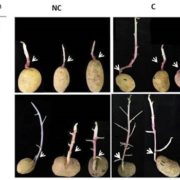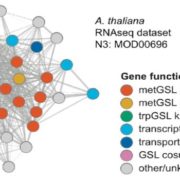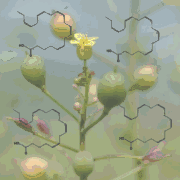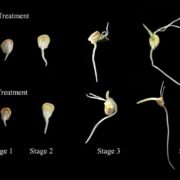Aldehyde Dehydrogenases Function in the Homeostasis of Pyridine Nucleotides in Arabidopsis thaliana (OA)
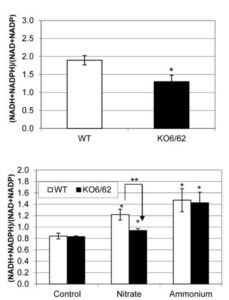 Sci. Rep. Aldehyde dehydrogenase enzymes (ALDHs) are very common proteins involved in the oxidation of aliphatic and aromatic aldehydes to their corresponding carboxylic acids, using NAD and NADP as electron acceptors.
Sci. Rep. Aldehyde dehydrogenase enzymes (ALDHs) are very common proteins involved in the oxidation of aliphatic and aromatic aldehydes to their corresponding carboxylic acids, using NAD and NADP as electron acceptors.
In this paper the authors explore the hypothesis that ALDHs are also important modulators of cellular redox homeostasis through modulation of NAD(P)/NAD(P)H ratios. They measured NAD(P) and NAD(P)H in single and double Arabidopsis ALDH mutant lines (aldh3I1/aldh7B4), and found significant alterations in the concentrations of these metabolites. In parallel, glucose-6-phosphate dehidrogenase activity was shown to increase in the double mutant. The increase was significant in both 6-week-old plants in normal conditions and nitrate-challenged 2-week-old seedlings.
The reported findings, together with a reduction in photosynthetic efficiency of the double mutant, agree with an interdependency between pyridine nucleotides, cellular redox and photosynthesis and suggests a role of ALDHs as contributors to the cellular redox homeostasis. (Summary by Elisa Dell’Aglio) Sci. Rep. 10.1038/s41598-018-21202-6


